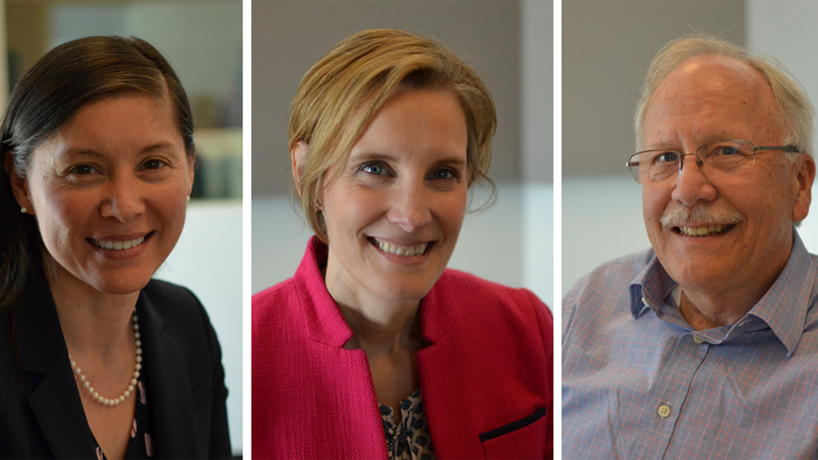
Mark Tranel (at right), the director of the Public Policy Research Center, appeared on “St. Louis on the Air” with United Way Vice Presidents Julie Russell (left) and Dayna Stock to discuss a their recent report on households struggling financially to meet everyday needs across the St. Louis region. (Photo by Kelly Moffitt)
There seems to be ample media coverage of poverty rates, which measure the number of people in the United States living below a federally designated level of income.
But those figures don’t come close to including all of the people struggling financially to meet their everyday needs.
A study by the United Way of Greater St. Louis and the Public Policy Research Center at the University of Missouri–St. Louis aimed to learn more about that often-overlooked population in the St. Louis metropolitan area – how many people are there and where do they live?
Mark Tranel, the director of the Public Policy Research Center, joined United Way Vice Presidents Dayna Stock and Julie Russell to discuss a recent report on their research with host Don Marsh Thursday on “St. Louis on the Air” on St. Louis Public Radio.
They found that 43 percent of households spread unevenly across the region’s 16 counties in Missouri and Illinois do not have monthly income to meet their regular living expenses in seven categories: food, housing, health care, transportation, childcare, taxes and other miscellaneous expenses.
Maybe just as striking was the amount of money they estimate people need in order to do so. They determined that a household with two adults and two children requires roughly $70,000 to meet all of its needed expenses. The federal poverty level for a household of four people for 2017 is $24,600.
“People have I think a good understanding of what poverty is because that’s a level established by the federal government, but that’s a measure of inadequate income,” Tranel said. “It doesn’t really say what’s a measure of adequate income. Hopefully, one of the impacts of this report is to provide the community with an understanding of what kind of income is necessary to have an adequate life for a household – and not only to have services available but for the community to support and understand the need for those services … because the demand is so great.”
Listen to the full conversation with Tranel, Stock, Russell and Marsh here and read the report here.














